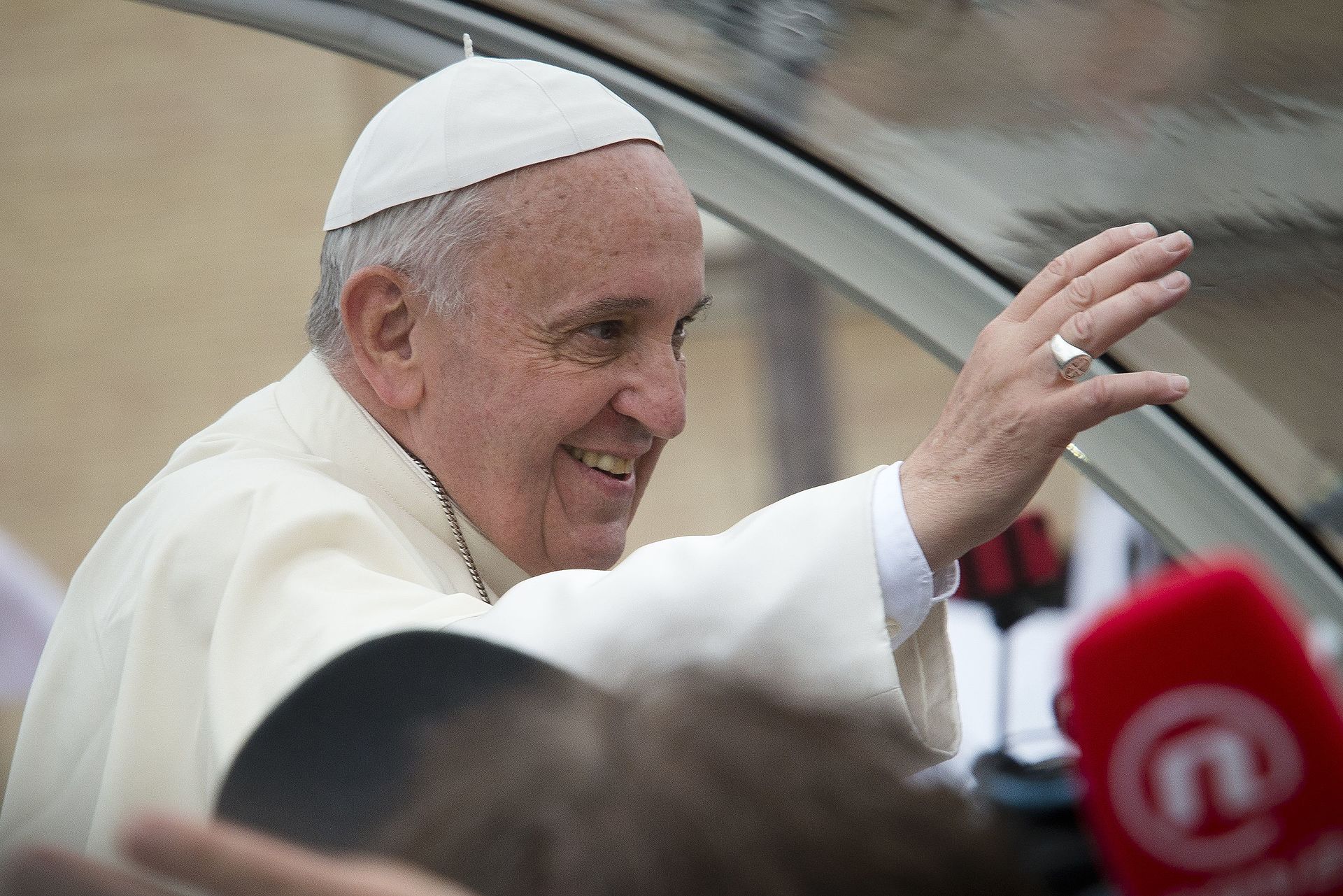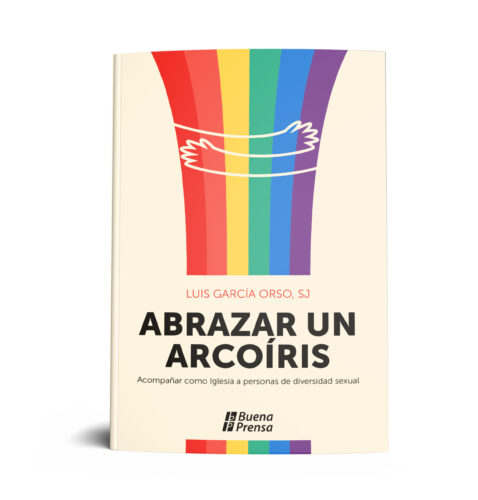The following chapter excerpt is reprinted from God’s Works Revealed: Spirituality, Theology, and Social Justice for Gay, Lesbian, and Bisexual Catholics. The book, written by Sam Albano and published by Paulist Press, was released on November 1. Outreach has maintained the style and conventions of the published text.
Chapter 10: Proclaiming Our Dignity
In 2014, the world was greeted by what then felt like an earthquake in the Catholic Church. The Synod of Bishops had been meeting in Rome to discuss “The Pastoral Challenges of the Family in the Context of Evangelization.” At the urging of a new pope, the bishops and invited speakers spoke openly and boldly on a range of issues affecting Catholic family life.
On October 13, the Synod released a midterm summary of its discussions. The report acknowledged honestly a problem perceived by at least some of the Synod’s participants:
The question of homosexuality leads to a serious reflection on how to elaborate realistic paths of affective growth and human and evangelical maturity integrating the sexual dimension: it appears therefore as an important educative challenge.
The Synod also observed “cases [of same-sex couples] in which mutual aid to the point of sacrifice constitutes a precious support in the life of the partners.” Although the report proposed no solution to these tensions, still less changes to Catholic doctrine, its remarkable words were heard around the world.
In 2014, the International Theological Commission (ITC) published a report on the role of Catholic laity in the formulation of doctrine. Pointedly, the report urged:
In matters of faith the baptized cannot be passive. …Not only do they have the right to be heard, but their reaction to what is proposed as belonging to the faith of the Apostles must be taken very seriously.
It is appropriate, indeed altogether necessary, that the reaction of LGB [lesbian, gay, bisexual] Catholics to the proposals of the Church’s pastors be taken very seriously when those proposals affect our lives and our relationships. As baptized members of the People of God, we must be afforded the opportunity to speak on our own condition. This has yet to occur in any serious and organized fashion within the Catholic Church.
Thinking with the Church
In the Spiritual Exercises, St. Ignatius of Loyola, the founder of the Jesuits, offers “Rules for Thinking with the Church.” Ignatius praised the frequent reception of the sacraments, participation in devotions, and the veneration of the saints. He urged that Catholics follow the Church’s regulations, particularly regarding fasting. He also encouraged study of the Church fathers and later doctors of the Church.
In these same rules, Ignatius urged that readers trust the conclusions of the hierarchical Church should they wish to “proceed securely in all things.” Ignatius’s great deference to the Church’s hierarchy was no doubt influenced by the turbulence of his times, which saw the Protestant Reformation and the resulting Council of Trent.
Shortly after his election as the first Jesuit pope and inspired by the teachings of the Second Vatican Council, Pope Francis reflected that the church is “pastors and people together,” “the totality of God’s people.” He emphasized that the Church is in dialogue among the people and the bishops assisted by the Holy Spirit. “We should not even think, therefore, that ‘thinking with the church’ means only thinking with the hierarchy of the Church,” Francis said.
“As baptized members of the People of God, we must be afforded the opportunity to speak on our own condition. This has yet to occur in any serious and organized fashion within the Catholic Church.”
All of us are members of this People of God. Our pilgrim Church is not an abstract pilgrimage of an institution or an idea. As God took on flesh and blood in Jesus Christ, the Church too is flesh and blood. The pilgrimage of which we speak is the journey of a people toward greater truth and holiness—a pilgrimage toward the person of Jesus Christ, who is truth and holiness itself.
As Catholics who are lesbian, gay, and bisexual, we are on pilgrimage with and among this people. Following the inspiration of St. Ignatius, it is our privilege and responsibility to participate in the life of this Church and to think together with this Church as we ponder the meaning of our spiritual, moral, and sexual lives.
Proclaiming Our Dignity
Without question, lesbian, gay, and bisexual persons are children of God, fully human and gifted with immeasurable dignity and worth. This is the teaching of the Catholic Church. It should not be controversial to repeat. The members of DignityUSA—an organization aptly named—have captured this reality powerfully in their Statement of Position and Purpose:
We believe that gay, lesbian, bisexual, transgender, queer and intersex Catholics in our diversity are members of Christ’s mystical body, numbered among the People of God. We have an inherent dignity because God created us, Christ died for us, and the Holy Spirit sanctified us in Baptism, making us temples of the Spirit, and channels through which God’s love becomes visible.
Within the Catholic Church, there must be a growing awareness of the exalted dignity proper to the gay, lesbian, bisexual, transgender, queer, or intersex person. Such a growing awareness will reveal that our deepest longings for love, for intimacy, and for total self-giving are good—not disordered—longings, which can be cultivated in a spirit of responsibility and fidelity to Christ.
A growing awareness of our dignity will recognize that we have the ability, as much as anyone else, to reflect the love of Christ for the Church. A growing awareness of our dignity reveals the need to reject every theological opinion that wrongfully declares us to be deficient persons who are psychologically damaged, objectively disordered, or lacking in human complementarity. A growing awareness of our dignity demands that we be liberated from any spirit of homophobia that stubbornly persists in the Church or in society.
Claiming Our Voice
In 2013, Pope Francis, when asked about gay and lesbian people, famously commented: “Religion has the right to express its opinion in the service of the people, but God in creation has set us free: it is not possible to interfere spiritually in the life of a person.”
“A growing awareness of our dignity reveals the need to reject every theological opinion that wrongfully declares us to be deficient persons who are psychologically damaged, objectively disordered, or lacking in human complementarity.”
There is a certain Christian liberty, which LGBTQI Catholics must confidently declare. This liberty is not to be confused with rebellion against our Church’s shepherds, much less rejection of the Church’s pastoral responsibility to teach faithfully the commandments of Jesus Christ. Rather, it is a liberty grounded in our baptism, which fills us with the Holy Spirit and calls us to holiness with all the People of God.
Drawing on our lives of prayer and friendship with Christ, we can confidently declare that we LGBTQI Catholics are friends of God. We are created in God’s holy image. We are children of this same God and are not irregularities or pitiable creatures afflicted with a dreadful and mysterious disorder. With our heterosexual brothers and sisters, we are sinners who have been healed and forgiven by the embrace of God’s mercy, called always to conversion and spiritual growth.
We are capable of love, fidelity, and every virtue that serves to build up the human family and the Body of Christ. We are right when we perceive in our sexuality a gift from God, and we fulfill our duty to God when we give thanks for this wonderful gift and strive to live it in a manner that is responsible, faithful, and loving. Indeed, as LGBTQI Catholics, we have a unique and indispensable role in God’s plan and vision for humanity.




